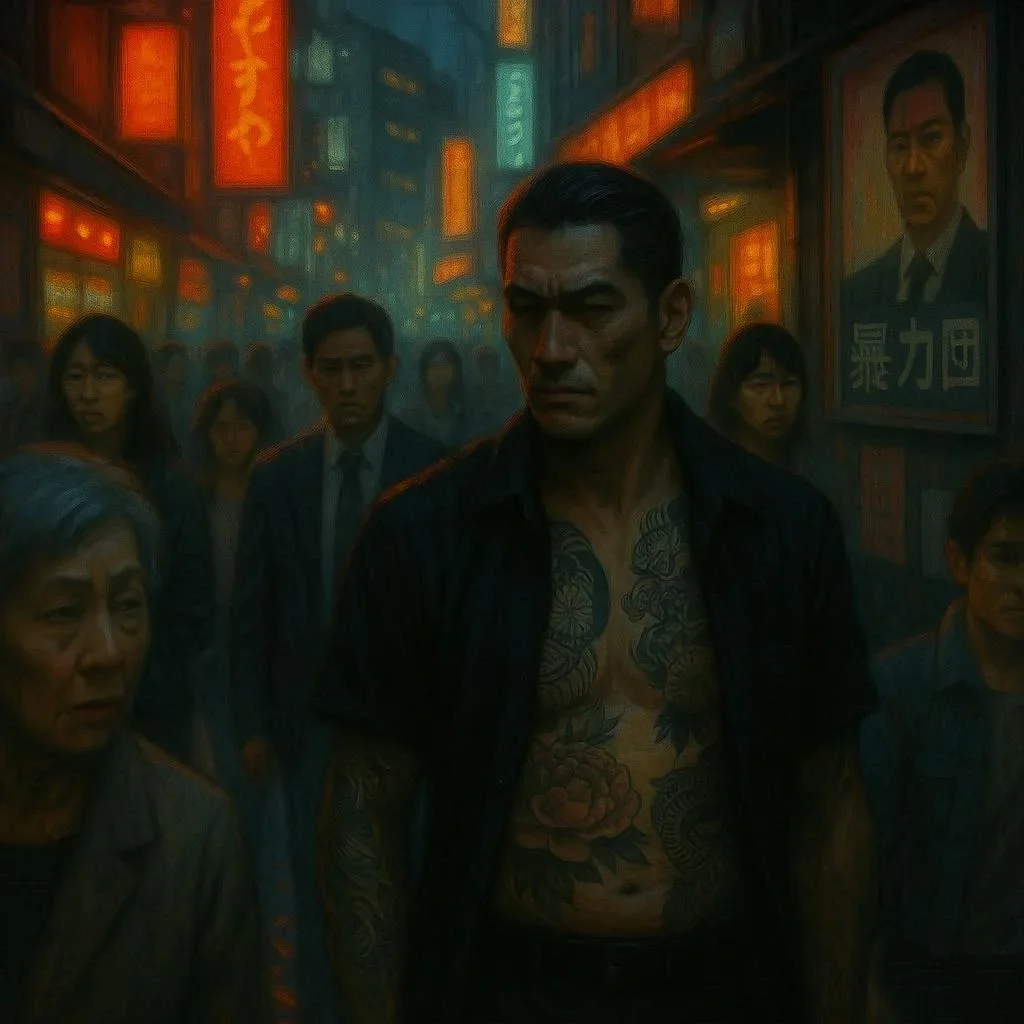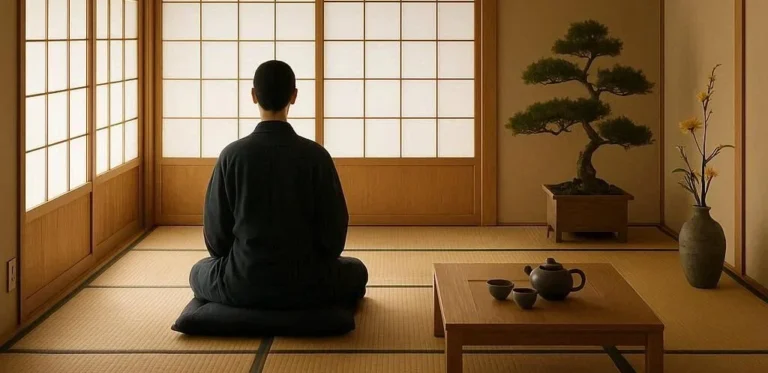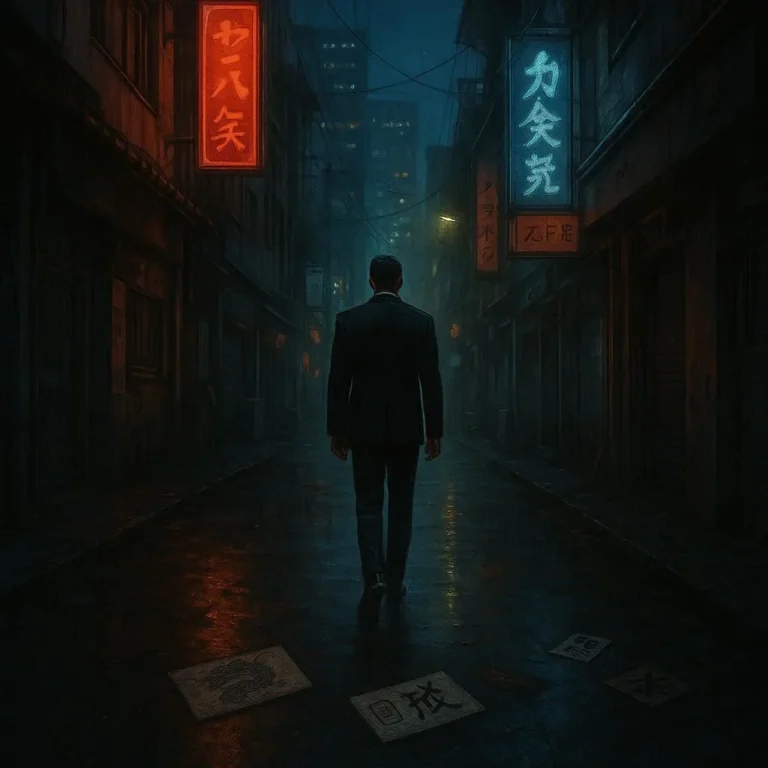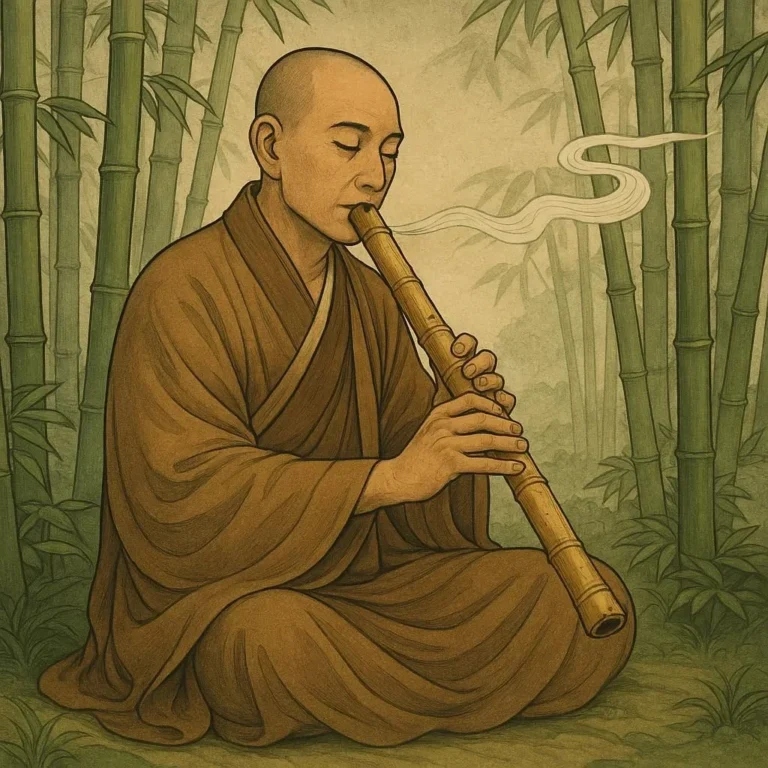504 views Why Foreigners Are Still Fascinated by Japan’s Organized Crime
Japan has always been a land of intrigue and mystery, blending ancient traditions with modernity in a way that captivates people from around the world. One aspect of Japanese culture that continues to draw significant attention, particularly from foreigners, is its organized crime syndicates, most notably the Yakuza. Despite the illegal nature of their activities, there’s an undeniable allure to these groups that has endured for decades. In this blog post, we’ll explore why foreigners remain fascinated by Japan’s organized crime and what makes it so unique compared to other criminal organizations worldwide.
The Yakuza: A Glimpse into Japan’s Organized Crime
The Yakuza, Japan’s largest and most well-known organized crime syndicate, has a history that dates back to the 17th century. The name ‘Yakuza’ is derived from the Japanese word ‘ya-ku-zu,’ which refers to a losing hand in a card game. This name reflects the group’s origins as outcasts and gamblers on the fringes of society. The Yakuza is divided into various factions, with the Yamaguchi-gumi being the largest and most powerful. The Yakuza is known for its strict code of honor, elaborate rituals, and adherence to tradition, which sets it apart from other organized crime groups.
1. The Code of Honor: A Unique Aspect of the Yakuza
One of the most fascinating aspects of the Yakuza is its strict code of honor, known as ‘giri’ and ‘ninjo.’ These principles emphasize loyalty, respect, and the importance of keeping one’s word. Members of the Yakuza are expected to adhere to these codes at all costs, even if it means sacrificing their own lives. This code of honor often leads to fascinating stories of loyalty and betrayal, which are frequently portrayed in Japanese films, books, and other forms of media.
The Yakuza’s adherence to tradition and honor is a stark contrast to the often chaotic and disorganized nature of criminal organizations in other countries. This unique blend of honor and violence creates a duality that is both intriguing and perplexing to foreigners. The fact that such a rigid code of conduct exists within an otherwise illegal and violent organization is a paradox that continues to capture the imagination of people around the world.
2. The Yakuza’s Role in Popular Culture
Another reason for the fascination with Japan’s organized crime is its prominent role in popular culture. The Yakuza has been a staple in Japanese cinema for decades, with films like ‘Battles Without Honor and Humanity’ and ‘Sonatine’ depicting the gritty and violent world of the Yakuza. These films often portray the Yakuza as both ruthless criminals and flawed, almost tragic figures, which adds depth to their portrayal and makes them more relatable to audiences.
In addition to films, the Yakuza has also been a popular subject in books, video games, and even music. The way these mediums portray the Yakuza often romanticizes their lifestyle, making them seem like a blend of gangsters and samurai. This portrayal is far removed from the harsh realities of organized crime, but it’s precisely this romanticization that makes the Yakuza so fascinating to foreigners who are unfamiliar with the real-life consequences of their actions.
3. The Yakuza’s Historical and Cultural Significance
The Yakuza’s origins can be traced back to the Edo period, when groups of gamblers and outcasts began to form their own communities. Over time, these groups evolved into the sophisticated criminal organizations we know today. The Yakuza’s history is deeply intertwined with Japan’s cultural and social development, making them a unique and interesting topic for foreigners who are interested in Japanese history and culture.
The Yakuza’s adherence to tradition and their role in maintaining social order in certain parts of Japanese society also contribute to their cultural significance. Despite their involvement in illegal activities, the Yakuza has historically played a role in maintaining order in Japan’s underworld, which has earned them a certain level of respect, albeit grudging, from the public and even from some law enforcement officials.
4. The Yakuza’s Elaborate Rituals and Hierarchy
Another aspect of the Yakuza that fascinates foreigners is their elaborate rituals and strict hierarchy. The Yakuza operates like a feudal organization, with members arranged in a clear chain of command. The hierarchy is often compared to that of a traditional Japanese family, with the boss (‘oyabun’) at the top and lower-ranking members (‘kobun’) expected to show unwavering loyalty to their superiors.
The Yakuza’s initiation rituals, such as the ‘sakazuki’ ceremony, are particularly intriguing. In this ceremony, a new member is officially welcomed into the organization by sharing a cup of sake with their superior, symbolizing the bond between them. These rituals are steeped in tradition and are often seen as a way of reinforcing the Yakuza’s code of honor and loyalty.
The Yakuza’s strict hierarchy and elaborate rituals are a far cry from the chaotic and often disorganized nature of criminal organizations in other countries. This level of organization and professionalism is something that sets the Yakuza apart and makes them a subject of fascination for foreigners.
5. The Yakuza’s Involvement in Japan’s Modern Society
Despite their illegal activities, the Yakuza has a visible presence in Japan’s modern society. They are often involved in legitimate businesses, such as real estate, construction, and entertainment, which allows them to operate relatively openly in certain parts of the country. This dual existence as both criminals and legitimate businesspeople adds to the Yakuza’s mystique and makes them all the more intriguing to foreigners.
In recent years, the Yakuza’s influence has begun to wane as the Japanese government has cracked down on organized crime. However, the Yakuza’s presence in Japanese society remains significant, and their activities continue to be a topic of interest both within Japan and abroad. The fact that the Yakuza can operate in such a way that they are both feared and, to some extent, accepted by Japanese society is a fascinating paradox that continues to capture the attention of foreigners.
The Fascination with the Yakuza’s Decline
In recent years, the Yakuza has experienced a decline in membership and influence, as younger generations in Japan turn away from the traditional norms and values that once defined the organization. This decline has led to increased interest in the Yakuza, as people seek to understand the reasons behind their decline and what this means for the future of organized crime in Japan.
The Yakuza’s decline has also been the subject of numerous articles, documentaries, and books, which have shed light on the inner workings of the organization and the challenges it faces in the modern world. These works have provided foreigners with a unique insight into the Yakuza’s world and have further fueled their fascination with Japan’s organized crime.
Conclusion
The fascination with Japan’s organized crime, particularly the Yakuza, can be attributed to a combination of factors, including their strict code of honor, their prominent role in popular culture, their historical and cultural significance, and their elaborate rituals and hierarchy. The Yakuza’s duality as both feared criminals and fascinating cultural phenomena creates a paradox that continues to capture the imagination of people around the world.
As Japan continues to modernize and the Yakuza’s influence begins to wane, the fascination with these organizations shows no signs of diminishing. In fact, the Yakuza’s decline has only added to their allure, as people seek to understand the significance of their place in Japanese history and culture. For foreigners, the Yakuza remains a source of intrigue, offering a glimpse into a world that is both violent and honor-bound, and steeped in tradition and ritual.





